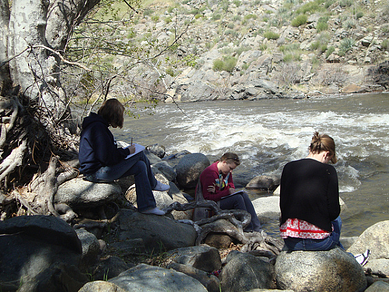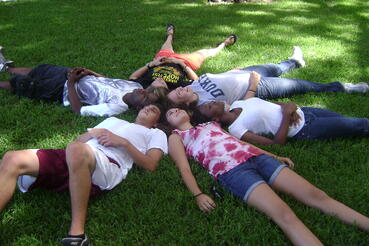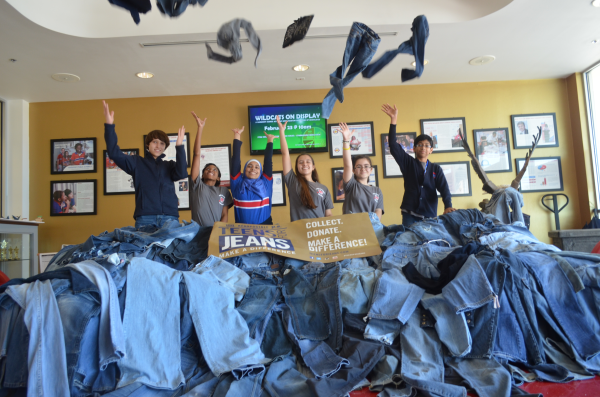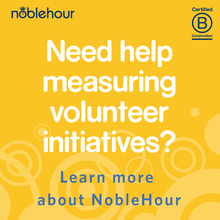In part three of our series about college visits, we share questions to ask and tips to make it a memorable day.
A Mother’s Confession – My husband and I had a far better time on the college tours than my son did. That may have been because with every question I asked, he sank deeper and deeper into his chair! Even though you may be thrilled about the next stage in your child’s life, don’t be surprised if your student isn’t as motivated as you are about these visits.
However, this is the time to ask important questions – for you and for your child. Whether you’re footing the bill, or your student is taking out loans, it’s a costly venture. Don’t be shy about getting as much information as possible.
In the Beginning
College tours usually begin with a general presentation in a classroom or lecture hall on campus. If your child is not one to appreciate your eager quest for knowledge, tell him or her to sit in the back and pretend they don’t know you. Many of your basic questions will probably be addressed in this presentation. However, I always had to raise my hand. I just couldn’t help myself. Whether it was about campus security, alcohol awareness, support for out-of-state students, or just some question that my son thought was totally lame, I needed answers to calm my parental anxiety. I think it was part of the process of letting go. I never let his embarrassment bother me. I embraced it.
on campus. If your child is not one to appreciate your eager quest for knowledge, tell him or her to sit in the back and pretend they don’t know you. Many of your basic questions will probably be addressed in this presentation. However, I always had to raise my hand. I just couldn’t help myself. Whether it was about campus security, alcohol awareness, support for out-of-state students, or just some question that my son thought was totally lame, I needed answers to calm my parental anxiety. I think it was part of the process of letting go. I never let his embarrassment bother me. I embraced it.
After the general presentation, you will be assigned to a tour guide – usually a college student.
Depending on how groups are arranged, you could ask for a student with interests similar to those of your child. That way, you can ask specific questions as you walk through campus. The tour will usually hit the highlights of the university – a few specific buildings where classes are held, the university center, the library, the quad or field where students hang out between classes, the bookstore, maybe the recreational center, and finally at least one dorm or dining hall.
You won’t see everything the school has to offer on your tour. However, use this opportunity to ask to see things “not” on the tour. For example, if your child is a swimmer, ask to see the pool, or meet with a coach. If your future college student excels in a particular subject, ask if there’s a chance you can meet with teachers or sit in on a class.
My son was interested in playing club water polo at LSU. He contacted the club's president via e-mail. While we weren’t able to meet with him that day, we were able to visit where they practiced and played - venues not on the scheduled tour.
“The better my visit was, the more I wanted to go there,” said Jane Berry, a sophomore at Brandeis University. “Whether it was the information session, or the person who gave the tour, I think it drastically impacted what I eventually ended up deciding.”
Christine Scalise, a Chicago mother of three teenage boys, agrees. She found her tour of the University of Tampa welcoming and very informative. “Going on tour and seeing the school helped make the decision.”
Reading Assignments
As you walk through campus, take note of the many school publications, flyers, etc. This is great material to review when you are waiting to meet with counselors, financial aid, or while you’re taking a coffee break. It’s also great information to look through when you return home.
“We took all relevant brochures and we picked up campus newspapers,” said Terri Stuckey, a mother of two college students and a high school junior. “You can learn a lot from the campus publications. They provide insight into what the kids are talking about or what the campus is like. Even the ads can give you a snapshot of what life is like at school.”
Charles Basden, Jr., coordinator, special projects, for George Washington University, a member of the NobleHour Network, also suggests looking at local publications near the school, as well as relevant academic publications to gauge how the school's reputation is relative to the greater population in the city.
Take A Good Look
Encourage your son or daughter to actually look at the university students. Do they seem happy and engaged? Are they polite and informative? Give your kids time to speak with students on their own. Interaction with them can provide a wealth of information.
Katie McKnight brought her daughter, Ellie, and two of her friends to visit William & Mary. Once the girls finished their interviews and had lunch, she told them it was time for them to explore - without her!
Once the girls finished their interviews and had lunch, she told them it was time for them to explore - without her!
Dr. McKnight is a college professor of secondary education/literacy for National Louis University in Chicago. "I think it's important for students to explore a campus on their own without parents hovering over them at all times. They need to talk to other students, listen to the campus, and observe. My daughter, not me, needs to decide if a particular college is the right fit."
Mom Tips
Whether your future college student is excited or not, embrace the day. Yes, it’s about them, but it’s about you too. You’ve put in a long 16-18 years raising this wonderful teenager. Here are a few tips to help you enjoy this occasion.
No matter what your teenager says or does, just smile at them with that, “I love you and am so proud of you look.” They can’t compete with that. But, remember, even though it’s exciting, it’s still stressful for them.
Next, wear comfortable shoes, and bring the following:
1. Sweater or sweatshirt
2. Small backpack or bag
3. Bottle of water
4. Pen and small notebook
5. Camera
6. Umbrella
7. Sunscreen
You could be on your feet for an hour or two depending on the size of the campus. Some larger universities may have shuttles, but you will still need to walk between certain areas. Remember, especially for southern schools – it may be warm and sunny outside, but airconditioning inside can feel like a walk-in cooler. You can freeze just waiting for the presentation to begin. A bottle of water comes in handy when you can’t leave the group to get something to drink.
Stash some sunscreen, a hat and even an umbrella in the car. The bookstore usually sells inexpensive rain ponchos if you get caught in a sudden storm. Be prepared for any weather. You spent a lot of money getting there and the tour goes on no matter what. Don’t forget that this is really a wonderful milestone in your child’s life and yours. Take some pictures!
“It was good to have that one-on-one time,” said Scalise. “We could really discuss the pros and cons of going away. It helps the kids know what to do and it’s very comforting to the parents as well."
Relax. It’s Just A Few Questions!
The one thing I learned about my son is that he doesn’t like to ask questions. And, he doesn’t like his mother to do it either. If your child is embarrassed by your thoughtful and intelligent questions, seize the opportunity to tell them what they often tell you – “Relax!” Assure them that no one at orientation will say – “Oh, you’re that boy with the mom who asked all the silly questions on the tour!”
So here’s a sampling of the questions that made my son cringe and move to the back row.
1. How hard is it to get the classes you want? For example, if you need to take specific classes to graduate – are they only offered in the spring? If this is the case, and you can’t get in to the class, it may take you longer to graduate.
2. How big are the classes? Ask different students how many kids are in their largesst class and how many are in their smallest class.
3. What percentages of courses do professors teach versus teaching assistants? It’s normal for some classes or labs to be taught by TA’s, but when you’re shelling out all that tuition money or your child is taking on huge loans, you don’t want all of their classes taught by TA’s.
4. What is the student to professor ratio?
5. Ask about the student population – percentage of males vs. females, locals vs. out-of-state, diversity, etc.
6. What sort of transportation do they offer if your student does not have a car?
7. How many years of on-campus housing are guaranteed? Is it required?
8. When are scholarship deadlines?
9. What is the acceptance rate?
10. What are the school’s campus safety initiatives? What measures do they take regarding safety, weather emergencies, etc.?
11. Do they have an alert system? Many schools now have text alert systems.
12. Ask about the facilities. What types of services do they offer – health center, recreation center, counseling, etc.?
13. Do they require alcohol/drug awareness seminars?
14. Do they offer career services?
15. What will be the return on investment by going to your school?
My last tip – when the tour is over, have your teenager remove her headphones and do your best to engage her in a conversation about what she liked and didn't like.
McKnight's daughter surprised her. Despite their visits to Dartmouth, Emory, and William & Mary, Ellie decided to attend Brandeis University, a school they did not visit until she was admitted and had already accepted the offer. McKnight asked Ellie if she was sure she wanted to accept before visiting the campus. "Yes," said Ellie. "I've been researching, visiting, and learning about colleges for the last year. I know what I want and even though I haven't visited Brandeis, it has what I want."
McKnight doesn't think her daughter would've been so resolute in committing to a college she had not visited if she hadn't already been on a tour. "College is about furthering one's individual identity and I think the visit is one of those first opportunities to to do so."
Please share your college tour experiences with us. What are your most important questions?
Photo credits: Christine Scalise and Katie McKnight
Check out Part 1 and 2 of our series -
Spring Break is a Good Time to Start College Visits
Scheduling College Tours? Begin With Basic Questions.


 determining schools to visit," said Deborah Kammerer, associate director recruitment & yield,
determining schools to visit," said Deborah Kammerer, associate director recruitment & yield,
 cities allowing flexible travel arrangements. They looked at cities with major airports, non-stop flights, or areas where they could visit more than one college in one trip. Also, if they had to fly, they committed to visiting at least two schools to make the trip more cost-effective.
cities allowing flexible travel arrangements. They looked at cities with major airports, non-stop flights, or areas where they could visit more than one college in one trip. Also, if they had to fly, they committed to visiting at least two schools to make the trip more cost-effective. said Kammerer. “It’s a great opportunity for admitted students to explore the campus and the variety of opportunities available.”
said Kammerer. “It’s a great opportunity for admitted students to explore the campus and the variety of opportunities available.”

 Springtime is around the corner. That means high school seniors are eagerly awaiting
Springtime is around the corner. That means high school seniors are eagerly awaiting




 If your student is always on the go and the thought of being home for four to five weeks will drive you both crazy, then consider a service trip to round out the winter break.
If your student is always on the go and the thought of being home for four to five weeks will drive you both crazy, then consider a service trip to round out the winter break.  The organization provides three simple meals, basic accommodations, and basic logistics to ensure a positive and productive experience. Volunteers must cover their own travel expenses and meals on days off. The organization has a strict minimum age policy and cannot accept volunteers under the age of 15 (14 in the Philippines). All 16 and 17 year olds must be accompanied with a responsible adult.
The organization provides three simple meals, basic accommodations, and basic logistics to ensure a positive and productive experience. Volunteers must cover their own travel expenses and meals on days off. The organization has a strict minimum age policy and cannot accept volunteers under the age of 15 (14 in the Philippines). All 16 and 17 year olds must be accompanied with a responsible adult.  1. Instead of Secret Santa,
1. Instead of Secret Santa, -resized-600.jpg?width=300&height=198&name=1_(15)-resized-600.jpg)
 While students are home for break or off for the holidays, a great community service activity is to volunteer at the food depository. School groups, service clubs, and individuals can help repack bulk food products into individual/family sizes. The food depository posts their
While students are home for break or off for the holidays, a great community service activity is to volunteer at the food depository. School groups, service clubs, and individuals can help repack bulk food products into individual/family sizes. The food depository posts their  Van Dyke said when he asks students why they want to pursue a specific major; they usually reply that they are good in that subject. For example, a student good in Math wants to study Engineering, but he may not look further than the obvious career path. They don’t think about all the different options for their particular set of skills. Many students just don’t want to do the research.
Van Dyke said when he asks students why they want to pursue a specific major; they usually reply that they are good in that subject. For example, a student good in Math wants to study Engineering, but he may not look further than the obvious career path. They don’t think about all the different options for their particular set of skills. Many students just don’t want to do the research. Allison’s volunteer work at the camp and throughout high school not only confirmed her desire to work in medicine, but also influenced her decision to become a pediatrician. A 2012 graduate of
Allison’s volunteer work at the camp and throughout high school not only confirmed her desire to work in medicine, but also influenced her decision to become a pediatrician. A 2012 graduate of  “Every year, since before I can remember, my mom brought me to help her at Krewe de Camp. When I was 8 years old, I met a girl named Katie who had Cerebral Palsy. She couldn't use her voice to speak so she used sign language. As soon as camp was over I asked my mom for some sign language books and dictionaries so I could learn how to communicate with Katie for the next summer. I can trace back my decision to go to RIT for interpreting to that day. I loved the feeling of being able to communicate with someone through a visual language and I wanted to be able to facilitate communication between people like Katie and other people who don't know her language.”
“Every year, since before I can remember, my mom brought me to help her at Krewe de Camp. When I was 8 years old, I met a girl named Katie who had Cerebral Palsy. She couldn't use her voice to speak so she used sign language. As soon as camp was over I asked my mom for some sign language books and dictionaries so I could learn how to communicate with Katie for the next summer. I can trace back my decision to go to RIT for interpreting to that day. I loved the feeling of being able to communicate with someone through a visual language and I wanted to be able to facilitate communication between people like Katie and other people who don't know her language.”  Walker thinks it’s never too soon to begin student volunteering in the community. “It can provide an easy and free way for students to get an idea about their potential career path.”
Walker thinks it’s never too soon to begin student volunteering in the community. “It can provide an easy and free way for students to get an idea about their potential career path.” 



